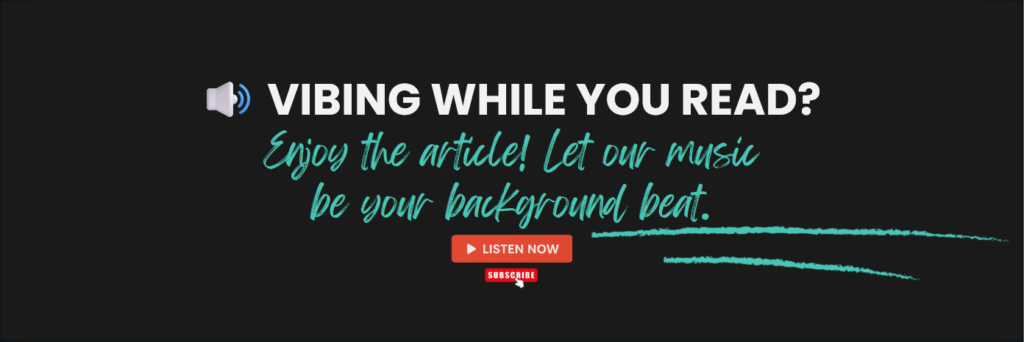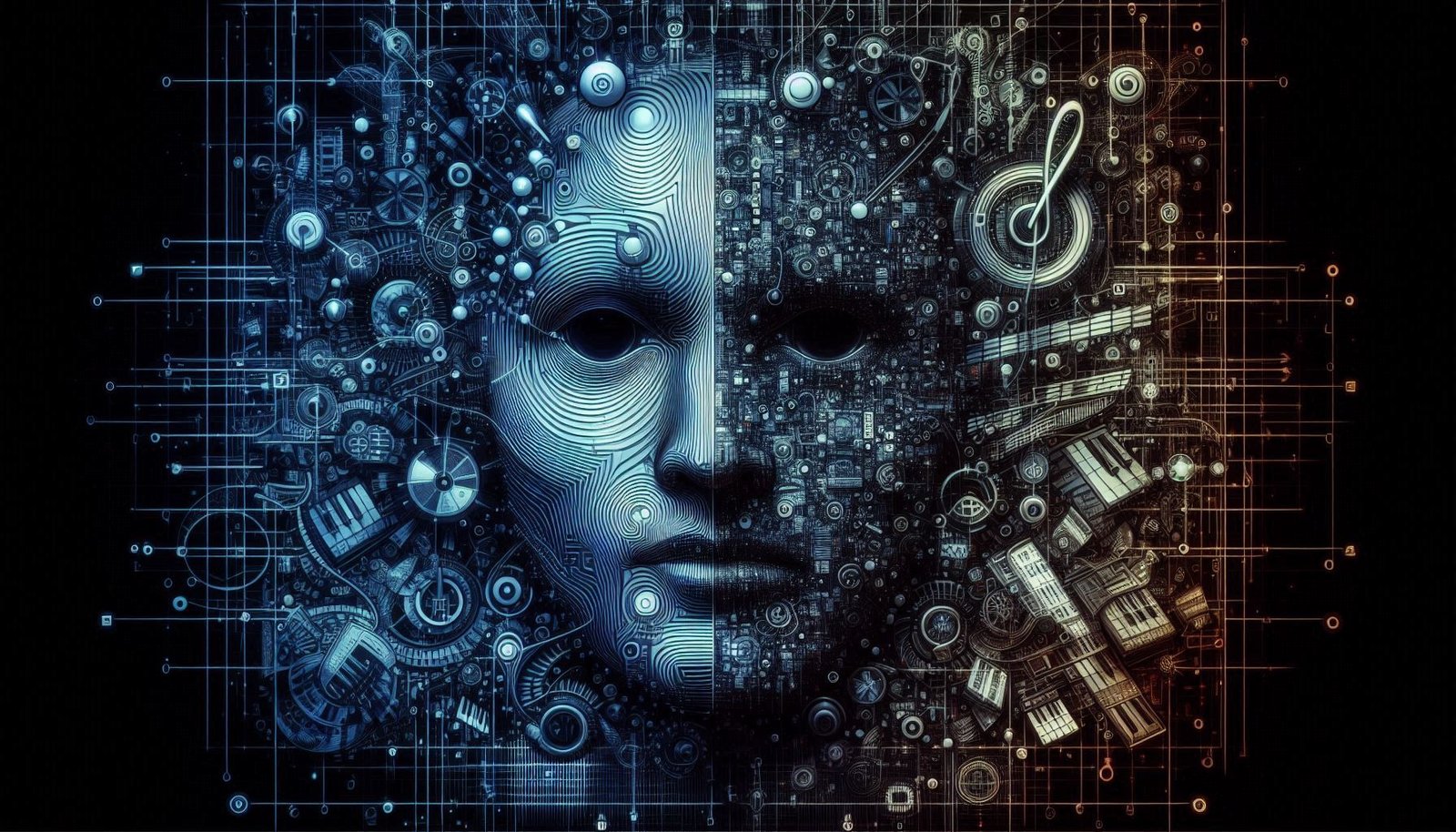
In a world where everything is just a tap away, music has never been more accessible. From curated playlists to “recommended for you” tracks, platforms like Spotify, YouTube Music, Apple Music, and TikTok seem to know exactly what we want to hear. But here’s the kicker—what if they’re not just recommending music? What if they’re controlling your taste, nudging your behavior, and boxing you into a musical echo chamber?
Let’s face it: algorithms are changing how we experience music. But it’s time we ask the big question—is that a good thing, or is something darker going on behind the scenes?
What Are Music Algorithms, Really?
At its core, a music algorithm is a set of data-driven rules used by streaming platforms to personalize your listening experience. These algorithms analyze:
- Your past listens
- Skip rates
- Likes and dislikes
- Listening duration
- Playlist adds
- Search history
- And even your mood (based on time of day, activity, or season)
All this data gets crunched to feed you songs you’re statistically more likely to enjoy. On the surface, it sounds like magic. Who doesn’t want a playlist that just gets you?
But here’s where things get dicey. What seems like personalization can quickly become manipulation.
The Allure of Convenience (and Its Hidden Cost)
We love convenience. It’s why autoplay exists. It’s why TikTok’s algorithm knows how to keep us scrolling. But with music, that convenience can lead to something more dangerous: passive consumption.
When the algorithm constantly serves you what’s familiar, catchy, or trending, your curiosity fades. You stop exploring. You stop searching. You stop thinking about what you actually want to listen to.
This turns music from a journey of discovery into a loop of predictability.
You’re not choosing music anymore—it’s choosing you.
The Filter Bubble Effect: Trapped in a Sonic Echo Chamber
Just like how social media creates filter bubbles where you only see content that reinforces your existing beliefs, music algorithms can create musical bubbles that limit your exposure.
You might think you have diverse taste, but if you’re relying solely on algorithmic recommendations, chances are your playlists are built around a narrow set of genres, moods, or vibes.
Over time, this can:
- Flatten your musical taste
- Suppress indie or emerging artists
- Reinforce mainstream trends
- Diminish cultural diversity in your music library
Let’s be real—are you vibing with something because it’s you, or because it’s been fed to you 100 times on shuffle?
Are You Being Brainwashed (Lowkey, Maybe)?
Let’s dig deeper.
Streaming platforms are businesses. Their goal isn’t just to help you discover amazing new music—it’s to keep you on the app for as long as possible.
That means favoring music that:
- Is short (hello, TikTok-friendly tracks!)
- Has high replay value
- Follows popular song structures
- Encourages passive listening (aka background noise)
This creates a feedback loop where songs are engineered to please the algorithm, not the listener. The result? A lot of music today is starting to sound… the same.
You’re not imagining it—songs are getting shorter, intros are disappearing, and everything is designed to hook you in the first 5 seconds. That’s not creativity. That’s algorithmic optimization.
The Rise (and Fall?) of Human Discovery
Remember the days when you’d find a new band through a friend, a local show, or a deep YouTube dive? Yeah, those were the vibes.
Today, algorithmic gatekeepers decide what gets pushed into your feed. That viral hit on your “Discover Weekly” might not be there because it’s a hidden gem—it could be there because a label paid for algorithmic positioning or playlist placement.
That’s right—music discovery is no longer purely organic. It’s programmed.
This shift has huge implications for artists too.
How Algorithms Are Changing the Music Industry (Spoiler: Not Always for the Better)
For emerging musicians, it’s not enough to make great music anymore. You have to:
- Optimize for streaming (short songs, punchy intros)
- Stay active on social media (especially TikTok and Reels)
- Hope you go viral or land on a big playlist
This puts enormous pressure on artists to play to the algorithm instead of following their creative instincts.
And if you’re not algorithm-friendly? You risk being invisible—no matter how talented you are.
Artists from niche genres, experimental backgrounds, or non-English-speaking countries often get buried under algorithmic noise, while a handful of mega-artists dominate the charts, playlists, and feeds.
So yeah, the algorithm isn’t just shaping your taste—it’s shaping the future of music itself.
The Psychological Game: Dopamine Loops and Emotional Tracking
Music taps directly into emotion—it’s why we cry during a breakup anthem or feel hype before a workout.
Streaming platforms know this. Some have even started integrating emotional AI to predict your mood and recommend music that reinforces it.
Here’s how it works:
- Morning? Chill acoustic playlists.
- Late night? Lo-fi or ambient.
- Breakup season? Sad girl autumn vibes incoming.
This might sound helpful, but it also keeps you in a dopamine loop—music becomes a way to maintain emotional states, not shift them.
Instead of using music as a tool for transformation, healing, or exploration, we’re just stuck in our feelings. Literally.
Music as a Mirror—or a Cage?
Let’s pause and ask the real question:
Is music still a reflection of who we are, or has it become a cage that algorithms build for us?
When music platforms track every skip, click, and vibe, they’re not just helping you—they’re predicting you. Over time, you become more predictable, too.
Your taste gets shaped by past choices. You stop evolving. You stop questioning. You become… programmable.
That’s not just creepy—it’s limiting. And honestly, it’s kind of boring.
The Myth of Free Choice
You might think, “I can still search for whatever I want, right?”
Technically, yes. But think about this:
- Do you scroll past your “Daily Mix”?
- When’s the last time you typed in an artist’s name instead of clicking a suggested playlist?
- Do you even remember how you found your favorite song?
The truth is, our choices are being influenced before we even make them. And that’s the power of algorithmic design.
It doesn’t take away your freedom—but it guides it so subtly you barely notice.
Fighting Back: How to Reclaim Your Music Taste
Don’t worry, this isn’t the part where we tell you to delete Spotify and go live in the woods with vinyl records (unless you’re into that).
But if you want to stay in control, here’s how to break free from the algorithm’s grip:
1. Go Manual Mode
Make your own playlists. Skip the auto-generated stuff. Rediscover the joy of choosing songs based on vibes, not code.
2. Explore the Unexplored
Try global music. Dig into niche genres. Follow indie blogs or TikTok creators who spotlight underground artists.
3. Support Human Curation
Follow playlists made by actual people, not AI. Look for DJs, music critics, or tastemakers who put effort into discovery.
4. Use Alternative Platforms
Check out platforms like Bandcamp, Audiomack, or SoundCloud where algorithms take a backseat and artist creativity leads the way.
5. Be Intentional
Ask yourself: Why am I listening to this? Is it because I love it, or because it’s been fed to me?
Final Thoughts: Don’t Let the Beat Program You
Look, algorithms aren’t evil. They’ve introduced millions of people to artists they might’ve never found otherwise. They help us make sense of an endless sea of songs. They’re part of the modern music landscape—and they’re not going away.
But here’s the deal: you deserve to be in control of your own taste.
Don’t settle for passive listening. Don’t let a faceless code dictate your mood, your playlists, or your identity. Music should be wild, weird, messy, and yours.
So next time you press play, remember—you’re not just a listener. You’re a curator. A creator. A music lover.
And no algorithm can take that from you.


